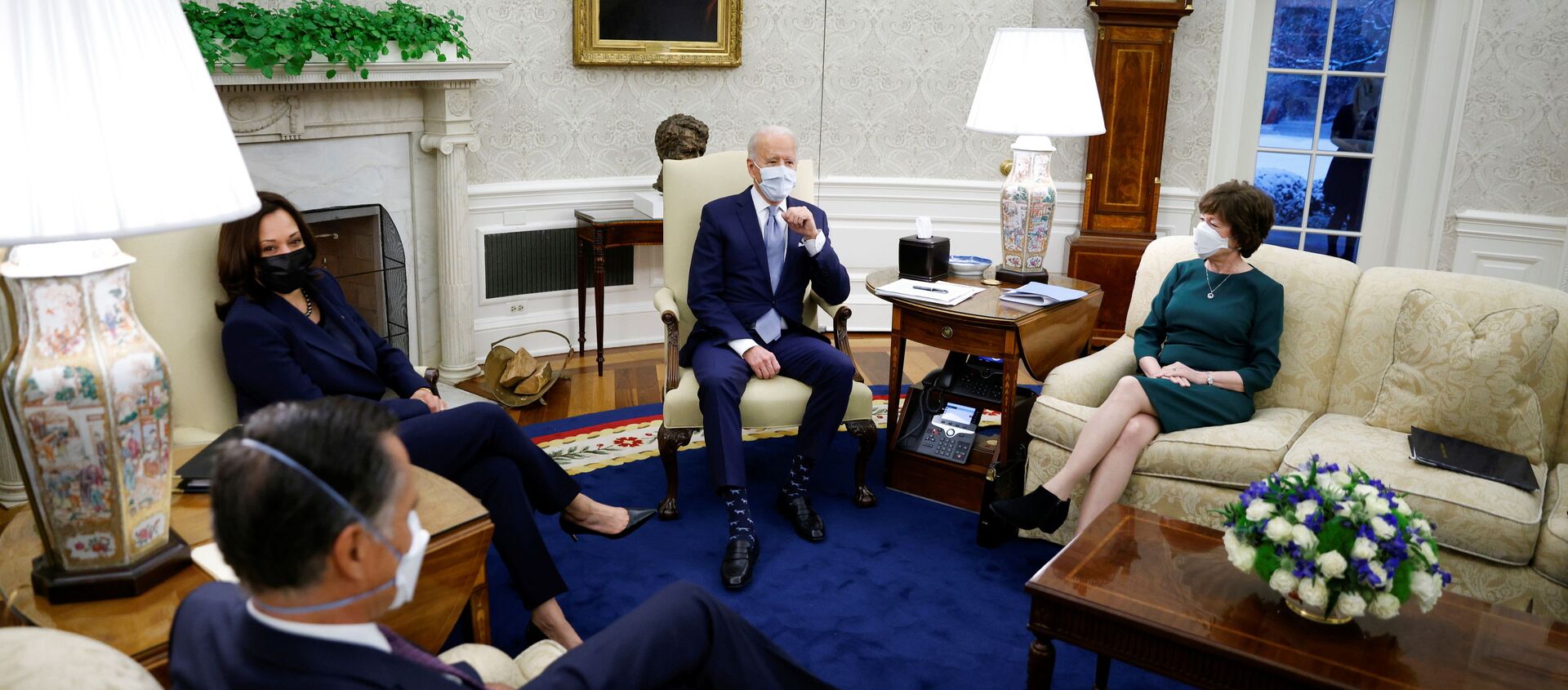The US House has approved a budget resolution that allows Congress to pass a hefty COVID-19 relief bill without Republican support.
The resolution was okayed in a 218-212 vote on Wednesday, and the Senate is expected to give the green light to the document later this week.
As the Democratic Party controls both chambers of the US Congress (resolving a 50-50 divide in the Senate by using Vice President Kamala Harris as a tiebreaker vote), the Democrats initiated a "joint budget resolution" that allows the relief bill to be passed via a simple majority instead of the Senate's traditional 60-vote threshold.
House Budget Committee Chair John Yarmuth said in a statement following the vote that Congress should continue to move forward with the coronavirus aid bill.
"While bipartisan talks continue, today's passage of the 2021 budget resolution ensures that we have another path to enacting President [Joe] Biden's American Rescue Plan. The American people cannot wait, and Congress cannot slow down our response to these urgent crises while Republicans decide if they want to help or not", Yarmuth stressed.
The statement came after Senate Majority Leader Chuck Schumer told reporters on Wednesday that the Democrats are "moving forward under the reconciliation", which is "what President Biden wants us to do".
He spoke as House Republicans criticised the massive package, arguing that the White House had decided to "ram through a partisan COVID-relief bill" after "weeks of calling for unity and bipartisanship".
"Again, despite calls for bipartisanship, there is no indication President Biden will change so much as a cent of his plan to accommodate Republican concerns", a press release from the office of House Minority Whip Steve Scalise stated.
The Democrats plan to spend $1.9 trillion on coronavirus aid after rejecting a counter-offer made by Republican lawmakers, who suggested a $618 billion package to curb the crisis.
The $1.9 trillion bill stipulates $1,400 direct payment to most Americans, with an additional $500 in aid for adult dependents and children.




